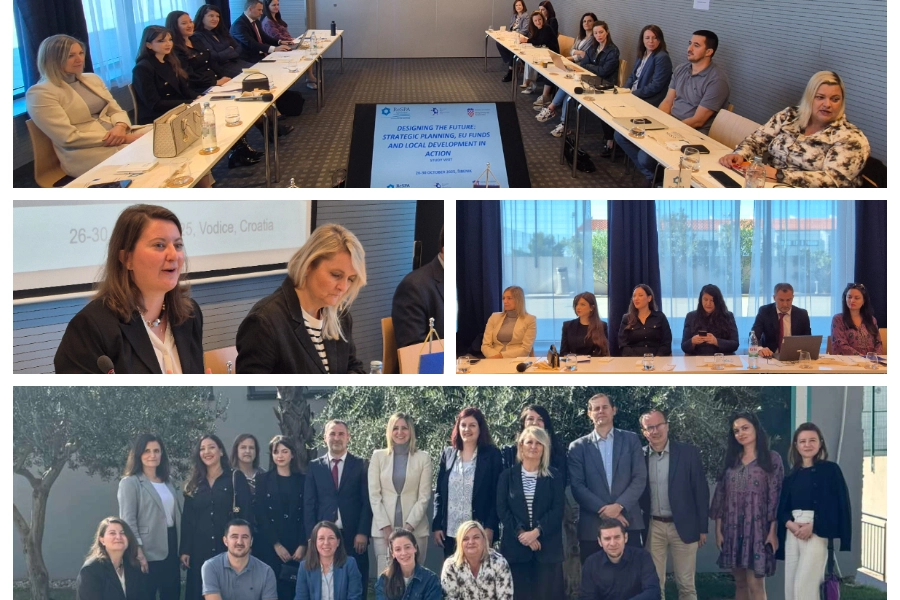
Designing the Future: Regional Development Through Strategic Planning, EU Funds and Local Development
26–30 October 2025, Šibenik, Croatia
ReSPA has launched the Seasonal School on Strategic Planning, EU Funds, and Local Development in Action - a four-day programme crafted with the Croatian Ministry of Foreign and European Affairs (MFEA) for senior public officials from across the Western Balkans. The overall goal of the programme is to strengthen their capacities in regional development, strategic planning, and effective use of EU funds- drawing on Croatia’s valuable experience as an EU member state.
This initiative stems from the MoU signed in April 2025, with the Ministry of Foreign and European Affairs of the Republic of Croatia – Service for Knowledge Transfer. It represents the first of many future collaborations.
The School was opened by Dubravka Smolić Vlaić, Head of Service for Knowledge Transfer at the MFEA Croatia, and Jelisaveta Tasev, ReSPA Programme Manager, who underlined the importance of fostering cooperation between EU member states and Western Balkan administrations in promoting sustainable local development and effective territorial governance.
Throughout the programme, participants engaged in lectures, case studies, and practical exercises led by distinguished Croatian experts, including Dr. Jakša Puljiz, Director of the Institute for Development and International Relations (IRMO) and former Deputy Minister at the Ministry of Regional Development and EU Funds; Domagoj Račić, an EU funds expert and former member of Croatia’s EU negotiation team; and Mladen Vojković, an experienced practitioner in the preparation of national strategic documents and EU reform programmes.
Participants explored key EU policies on cohesion and territorial development, the revitalisation of less-developed regions, and principles of participatory planning and integrated territorial approaches, aiming to translate these frameworks into actionable tools for designing development programmes aligned with EU priorities and local needs.
A highlight of the programme was the field-based learning component in Šibenik-Knin County, where participants visited successful EU-funded projects illustrating the transformative impact of European cohesion policy. Presentations were delivered by Stipe Španja, Head of the Department for Project Implementation at the Šibenik-Knin County Development Agency; Maja Čeko, Head of the Department for Economy, Entrepreneurship and Development, City of Šibenik; and Zoran Živković, Principal of the Industrial and Craft School Šibenik and leader of the EU-funded project Ars Mechanica.
Participants gained first-hand insights into integrated territorial planning, green and digital transition initiatives, and education-driven regional innovation. The study visits to the historical fortresses of St. Ivan and St. Mihovil, along with the Ars Mechanica Regional Centre of Competence, provided tangible examples of how strategic investment can merge heritage preservation, education, and sustainable tourism.
The closing session, moderated by Mladen Vojković, showcased participants’ group work outcomes, reflecting their analytical and creative approaches to addressing key development challenges faced by local and regional administrations.
By connecting the Western Balkans’ public administrations with Croatia’s advanced expertise, the Seasonal School reaffirmed ReSPA’s role as a bridge of knowledge and cooperation, empowering the region’s institutions to better align with EU standards, strengthen local governance, and foster territorial cohesion.



